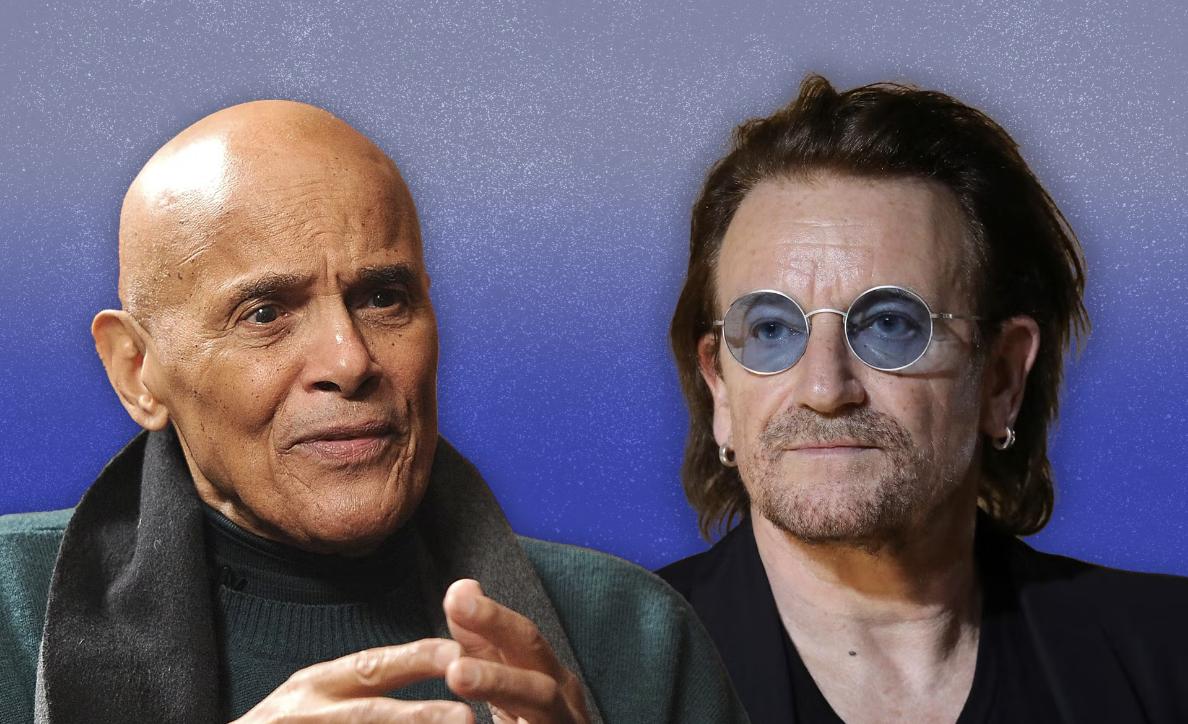I was 12. The year was 1957. I joined family members in a sparkling ballroom at the Eden Roc Hotel in Miami Beach when I suddenly became mesmerized by the calypso sounds voiced by an incredible performer.
Never before had I heard a live solo performance. It was unforgettable.
The charismatic entertainer was Harry Belafonte, who died last week at age 96. I normally pay little or no attention to the death of a celebrity. This time was different.
Belafonte’s lyrics reflected his Jamaican roots. His famous 1956 song, “Day-O (The Banana Boat Song”). with its contagious lilting melody, stuck with me for years. So did the image of an elegant singer who captivated the audience with his voice and persona. The Pompeii Ballroom was his domain that evening.
As I learned, his immensely popular musical masterpiece simply evaded the consciousness of my 12-year-old self. Belafonte purposely produced an ode to hard-working, poorly treated boat captains. He targeted the travail of colonialism.
He eschewed the image of lazy Jamaican men sitting around on coconut trees. His songwriting was purposeful. He sought more and sang about it.
Belafonte did more. Far more, away from the spotlight.
Until I read a column paying tribute to the deceased performer, I knew nothing about his active participation in our country’s civil rights movement. His career suffered from activism. He was a close associate of the inestimable Martin Luther King, Jr. He used his fame to promote civil rights at an explosive time.
For better or worse, celebrities enjoy a platform unavailable to the rest of us. Some use it wisely. Some do not. It is more than just showing up and gaining attention.
Several years ago, at my alma mater, I listened as Irish rock star Bono spoke. I recall dreading and deriding his selection as the speaker. I wondered: what could he possibly say of any value?
When I told family members about my plans to attend graduation, I deliberately mispronounced his name for effect and referred to him as Sonny Bono, another well-known performer who subsequently became a U.S. congressperson.
I was dead wrong about Bono. Happily so.
At first concerned when he began his remarks with typical use of humor, by telling University of Pennsylvania graduates, parents and alumni that the last time he appeared at historic Franklin Field he was arrested for crass language, he began to exhibit another side of his personality.
For nearly 30 minutes, Bono spoke knowledgeably and compassionately about poverty in Africa. He was committed to mitigating poverty. His concerts by Bono and the U2 Band have raised money to provide relief. He has met with world leaders.
Like Belafonte, Bono focuses on substance, not show in working to relieve social and health problems in Africa. He takes himself seriously, and so should others. So much for my skepticism.
At 12 in 1957, I simply enjoyed a gifted entertainer. I did not listen closely to the lyrics. Fifty years later, I overcame my pre-conceptions and fully appreciated a speech given by a world-renown performer as he discussed the horror of poverty and HIV/AIDS in Africa.
I was fascinated by Bono. I was enthralled by Harry Belafonte. I treasure my memories of, and respect for them.
The colloquial expression, “all that glitters is not gold,” is contrary to the outer artistry and inner soul of a Jamaican entertainer and Irish rock star.
Columnist Howard Freedlander retired in 2011 as Deputy State Treasurer of the State of Maryland. Previously, he was the executive officer of the Maryland National Guard. He also served as community editor for Chesapeake Publishing, lastly at the Queen Anne’s Record-Observer. After 44 years in Easton, Howard and his wife, Liz, moved in November 2020 to Annapolis, where they live with Toby, a King Charles Cavalier Spaniel who has no regal bearing, just a mellow, enticing disposition.



Maria W says
I’ve never thought about Belafonte and Bono together before, but you’re absolutely right, they share a strong sense of justice, a willingness to follow up on their convictions with action, and a seriously sharp, incisive brain.